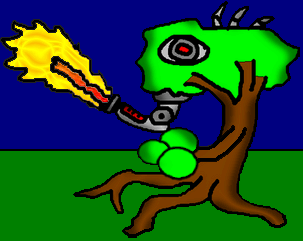My Caldecott-winning critique of modern greed, Joy of Acquisition, explains quite poignantly how society looks down upon the less-acknowledged virtues: gluttony, self-indulgence, and an insatiable hunger for more wealth. Why do some experts, lay people, and ghosts view these values so unfavorably? In Joy, I examine the basis for each of their arguments, and refute said arguments rather skillfully.
Gluttony, one of the seven so-called deadly sins, has been unfairly labeled. Opponents of gluttony claim that eating more food than one needs, or consuming more resources than is required, deprives others of said needed resources. What these anti-glutton hypocrites fail to understand is that it is impossible to quantify the “need” of a resource. What is quantifiable is the impact that the expenditure of that resource has on society. When I go to McDonalds® and order a ten piece Chicken Selects, I may not technically need all that food. But my transaction converts McDonalds®’ food resource into cold, hard, untraceable cash. McDonalds® then accumulates money, expands, and continues to provide— nay, it provides a better, superior, service. Gluttony is widely believed to be a form of over-indulgence. A lot of people confuse this with self-indulgence.
Throughout history, from Emperors to chimney sweeps, millions upon millions of people have engaged in self-indulgence. Critics of this glorious virtue are quick to jump to the few cases of over-indulgence. They point to Nero, who allegedly burned a third of Rome so he could build a private fantasyland. But the key difference between Nero’s actions and regular self-indulgence is that Nero was over-indulgent. Regular self-indulgence is so integral to human civilization that it forms the cornerstone of our free market economy. Each Thanksgiving, I make sure to eat a huge, juicy turkey. I have it with stuffing, corn, mashed potatoes; it’s all very festive and delicious. But I could easily avoid Thanksgiving, and the unwanted calories that come with such viscous gravy. If I avoided Thanksgiving, one less turkey would be bought. Sure, one turkey probably wouldn’t make any difference in the grand scheme of things. But if enough people stopped buying turkeys, the turkey industry would be crippled. Our self-indulgence every Thanksgiving weekend keeps thousands of turkey farmers in business, who, in turn, perpetuate the cycle of self-indulgence by producing bigger, more succulent turkeys.
Without self-indulgence, this poor farmer would have to sell his soul.
The final chapter of Joy of Acquisition deals with the unquenchable urge to acquire more wealth. Why does wealth beget more wealth? The answer doesn’t lie in the wealth itself. The wealth isn’t good; it isn’t evil. It has no emotion, no inherent value or significance of any kind. Therefore, the need, the passion, the raison d'être of further acquisition is not an outside, but an inner force. We acquire, we take, and we hunger, because we want to. When one of our neighbors gets a new mailbox, we get a newer, more durable mailbox shaped like an airplane. When the guy sitting next to us at a football game gets out of his seat to buy a box of nachos, we buy ten boxes of nachos, four hot dogs, and a soda. We do all this because greed is an end unto itself; because our desire to own propels us to action. If not for our endless drive to own, our civilization would not be in the state it is in today.
Roosevelt was only partly right in his axiom. The joys resulting from the expenditure of wealth, such as buying a ten piece of delicious Chicken Selects at McDonalds®, are indeed gratifying. But the sense of “achievement” and the “thrill of creative effort” he speaks of are all derivative of acquired wealth. The tools used to create such sensations of happiness were designed to function within the parameters of greed. The sense of accomplishment after a beautiful painting is finished? The brush, paint, and canvas were all built for profit. Thrilled at the sound of a great song? That same tune will most likely be sold, replayed, and resold again and again. The underlying theme throughout it all is the sense of unfettered acquisition. I write about all this and more in Joy of Acquisition. Supplies are limited, so order your copy today!



I was woundering if I was doing the right thing by my middle-class American lifestyle.
Thank you so much for helping me to understand my 'sef-indulgance' & greed are O.K.
I buy boxes to store my 'stuff' so I can buy more 'stuff'. I was feeling guilty about this, but now I know it's O.K.
Also, I'm doing it for the future of OUR babybot.
Greed is fine. It helped me to retire, then teach. I'm still greedy. I want higher grades from my students. Greed is good!
I must admit, I was influenced by the Rules of Acquisition.
Yo, man -
I'd LOVE a McDougal avatar.
What you got?
I am pretty gluttonous when it comes to Funyuns. I don't think I deprive other people of Funyuns and I would gladly share the broken ones with anyone.
I am pretty gluttonous when it comes to Funyuns. I don't think I deprive other people of Funyuns and I would gladly share the broken ones with anyone.